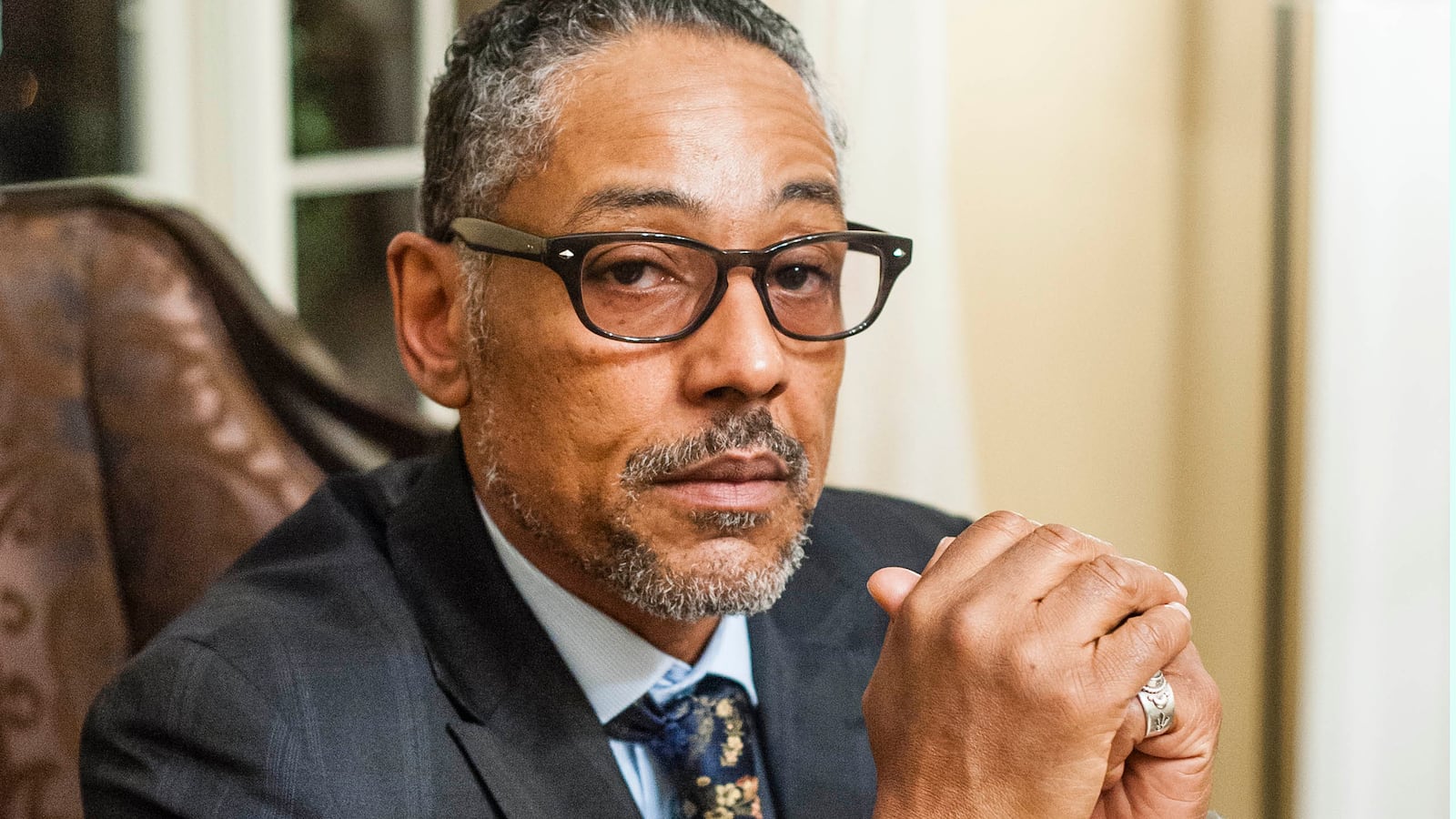Barely two minutes into our interview, Giancarlo Esposito drops a bombshell.
“My mother tried to commit suicide once, my uncle committed suicide, and I found myself at the wrong end of a 12-gauge shotgun at one point thinking that I should blow myself away.
“I only mention that because I do have some knowledge of depression and where that could lead to,” he explains.
It’s a mid-March afternoon and Esposito and I are sitting at Coffee Bean & Tea Leaf in Austin, Texas, not far from where his new film premiered the night before as part of the SXSW festival. The Austin native also spent some time days earlier with fans of his Breaking Bad and Better Call Saul character Gus Fring in a full-scale replica of the Los Pollos Hermanos fast-food restaurant.
In the six months since its debut, Esposito’s second directorial feature has changed its title. What used to be called the potentially off-putting This Is Your Death is now simply The Show. It is finally opening in select theaters and on demand starting this Friday.
The Show centers on a reality host, played by Josh Duhamel, who, in the opening scene, has a traumatic experience during the taping of a Bachelor-type program called Married to a Millionaire. This bit of unexpected violence leads him to develop a new show in which contestants essentially auction off their suicides for the masses to watch on live television. Esposito appears in the film as Mason Washington, a down-on-his-luck janitor who starts to see taking his own life as his family’s only hope.
Suffice it to say, the film is dark.
Esposito admits that the movie contains “sensitive and tough subject matter” and will be “difficult to watch” for anyone who has had suicide touch their lives. But he also believes it can be cathartic.
“The movie has been well-received by audiences and in some cases, critically not so well-received,” he notes, pointing out that one of those less-than-stellar reviews had just been published in The Daily Beast. “I realize that critics have been critical,” he says, begrudgingly.
In his review, Kevin Fallon wrote, “The film is exceptionally problematic. It is on-the-nose in a way that is patronizing, and also shows a deep lack of understanding of suicide and depression.”
Given his personal experience with suicide, Esposito takes exception to the assumption that he “doesn’t understand how serious the subject matter is.” But, he adds, “I’m really happy the movie is out and is so provocative. That’s what it’s all about, getting people to think and have their own opinions. I made the movie, people saw it, they can say whatever the heck they want.
“It is a big swing, but it’s a film about our social consciousness and what we think in many ways,” Esposito continues. But “making a film about suicide and then showing what those suicides are,” he says, has led critics to accuse him of “chiding the audience for watching this kind of programming, which I’m not at all. I’ve just made something that I feel is provocative and might allow people to think about things.”
Yes, the suicides depicted on the reality show within the film are sensationalized, but that’s the point. Just as Esposito says one of his four daughters became obsessed with watching the trials and tribulations of the Kardashians, the audience onscreen in The Show find itself transfixed with other people’s pain. That is until, near the end of the film, something happens that makes them “finally not want to look anymore.”
“I’m drawn to films that make you think, allow you to think, give you the space to think,” Esposito says. “And this film, although it has the violence of the deaths, is not a shoot-’em-up film. Maybe that’s why it’s so disturbing. We’re obsessed with guns and the trigger finger, but here we have people hurting themselves.”
Esposito’s long acting career dates back to early-1980s appearances on shows like Sesame Street and Guiding Light through his breakthrough performance as Buggin Out in Spike Lee’s 1989 masterpiece Do the Right Thing all the way up to his Emmy-nominated work as Gus on Breaking Bad and now Better Call Saul. But his career as a director is just getting started.
He made his directorial debut with 2008’s Gospel Hill, in which he appeared alongside Danny Glover and Angela Bassett. Next, he could end up directing himself yet again, this time as Frederick Douglass, opposite Ed Harris as abolitionist John Brown in Patriotic Treason, written by The Motorcycle Diaries’ Jose Rivera. “I’m dying to tell that story and it looks like we’re getting closer,” he says.
He first received the screenplay for what has now become The Show, credited to Kenny Yakkel and Genius creator Noah Pink, more than seven years ago. “When it came to me, I related to the script, but it wasn’t complete,” he says. “And I truly related to the character of Mason.”
At the time, Esposito was looking to direct something in which he would not appear. But he felt the link between himself and the character he ended up playing was undeniable.
“Because I had gone through terrible times in the first economic downturn, lost my house and my marriage and all of that,” he says. “So part of me was that guy. He’s gotten to a place where he has to do something that he really doesn’t want to do. But he’s willing to make that sacrifice. I only know that feeling because I was there.”






